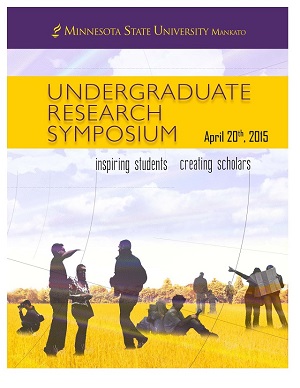Detecting Deception: How Do People Distinguish Between Truth-Tellers and Liars?
Location
CSU Ballroom
Start Date
20-4-2015 2:00 PM
End Date
20-4-2015 3:30 PM
Student's Major
Psychology
Student's College
Social and Behavioral Sciences
Mentor's Name
Emily Stark
Mentor's Email Address
emily.stark@mnsu.edu
Mentor's Department
Psychology
Mentor's College
Social and Behavioral Sciences
Description
This research is based on studies conducted by Albrechtson et al. (2009) which suggests that people can intuitively distinguish truths from lies, even when general abilities to detect deception are low. It also states people are more accurate at detecting lies when they use intuition versus other bases for judgment, such as using logic and reason. The current experiment examines the cues that participants use to detect lies, and how their intuition influences this ability. We expect that people who rely on their intuition in general to make judgments, compared to relying on logical reasoning, will show the highest levels of accuracy. Participants viewed a series of video clips that contained people telling truthful or untruthful stories. While participants watched the clips they simultaneously filled out a packet which contained ratings of each story teller and an open-ended question on cues they used to determine truth from falsehood. Participants also indicated if they thought the story was true or a lie. Finally, participants completed a personality questionnaire and demographic questions. Data collection is ongoing and the final sample will consist of judgments from over 40 participants. Our analyses will test whether or not participants are accurate in detecting deception, and whether those who are more intuitive are also more accurate. This study is important because it extends past similar experimentation by incorporating measures of personality traits related to use of intuition while also working to replicate these intriguing findings on the role of intuition in detecting deception.
Detecting Deception: How Do People Distinguish Between Truth-Tellers and Liars?
CSU Ballroom
This research is based on studies conducted by Albrechtson et al. (2009) which suggests that people can intuitively distinguish truths from lies, even when general abilities to detect deception are low. It also states people are more accurate at detecting lies when they use intuition versus other bases for judgment, such as using logic and reason. The current experiment examines the cues that participants use to detect lies, and how their intuition influences this ability. We expect that people who rely on their intuition in general to make judgments, compared to relying on logical reasoning, will show the highest levels of accuracy. Participants viewed a series of video clips that contained people telling truthful or untruthful stories. While participants watched the clips they simultaneously filled out a packet which contained ratings of each story teller and an open-ended question on cues they used to determine truth from falsehood. Participants also indicated if they thought the story was true or a lie. Finally, participants completed a personality questionnaire and demographic questions. Data collection is ongoing and the final sample will consist of judgments from over 40 participants. Our analyses will test whether or not participants are accurate in detecting deception, and whether those who are more intuitive are also more accurate. This study is important because it extends past similar experimentation by incorporating measures of personality traits related to use of intuition while also working to replicate these intriguing findings on the role of intuition in detecting deception.
Recommended Citation
Cole, Jessica and Shelby Flegel. "Detecting Deception: How Do People Distinguish Between Truth-Tellers and Liars?." Undergraduate Research Symposium, Mankato, MN, April 20, 2015.
https://cornerstone.lib.mnsu.edu/urs/2015/poster_session_B/40




